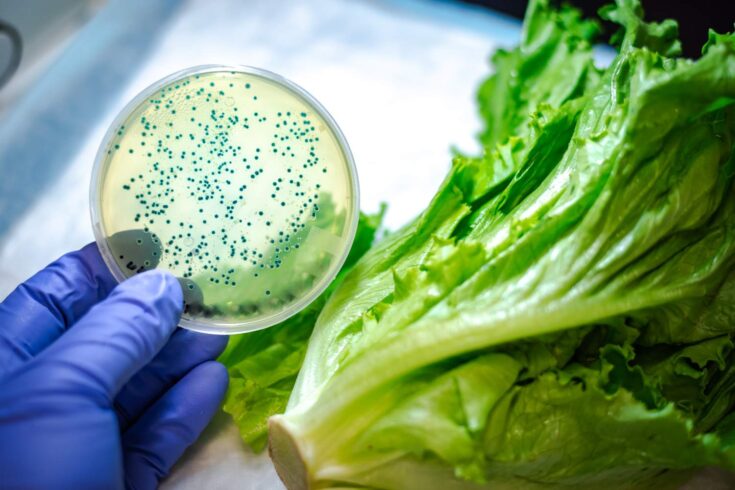Biotechnology and Biological Sciences Research Council (BBSRC) and Food Standards Agency (FSA) invest £1.6 million into new UK food safety network.
Food poisoning is a major health challenge that costs the UK up to £9 billion each year.
To help tackle the problem, BBSRC and the FSA have invested £1.6 million into the creation of a new UK food safety network.
Strengthening collaboration to improve food safety
The new network is hosted by the Quadram Institute.
It will bolster connections between the food industry, food and health policy makers and the academic community to collaboratively pursue shared research priorities that will protect the UK from future foodborne hazards.
As well as serving as an innovation hub to coordinate and fund cross-sectoral research and training activities to address current and emerging food safety challenges, the UK food safety network will also:
- assemble a community of UK food producers, food policy makers and scientific researchers who, collectively, can take robust actions toward improving food safety
- identify areas of research need and opportunity that, in the view of food stakeholders and network members, will have meaningful impacts on UK food safety
- coordinate new collaborative research activities that promote the application of science towards the food safety challenges identified by the UK’s food system community
- host training that promotes skills development, interoperability and relationship-building between the UK’s food system community
- translate knowledge generated by the network to food safety stakeholders and upcycle existing information and technologies relevant to food safety that have not yet been applied more broadly.
Food safety based on science
Quadram Institute Group Leader and UK food safety network Lead, Dr Matt Gilmour, said:
The safety of our food is threatened by both enduring and emerging threats from microbes that contaminate our food.
This threat is exemplified by microbes that spread between the environment, animals and humans, with foodborne exposures being a means for the transmission of pathogens and novel antimicrobial resistance genes from agriculture.
The challenge is to take an integrated and unified approach to these problems right through from agriculture and the environment, to food production and human health, in what’s termed a ‘One Health’ approach.
To do that we need to collaborate with food and other associated industries to share research and innovation and deliver training activities.
Safer food, better health
FSA Chief Scientific Advisor, Professor Robin May, said:
We are excited to partner with BBSRC and the Quadram Institute for the creation of the UK food safety network.
Foodborne disease is a major cause of illness in the UK population and imposes a significant burden on both infected individuals and the economy.
The new network directly aligns with the core objectives of the FSA Strategy 2022-2027 to ensure food is safe and food is what it says it is.
Importantly, the network will ensure that the FSA is well-placed to tackle the challenges of foodborne illnesses by bringing together experts from government, industry and academia to address current and emerging issues of food safety in the UK.
Healthy society, healthy economy
BBSRC Executive Chair, Professor Melanie Welham, said:
Each year, food poisoning has a major impact on the health of UK citizens and the health of our economy.
The new UK food safety network presents a tangible and exciting opportunity for collaborations to form between a range of experts to improve our understanding of foodborne disease and identify new ways in which to effectively predict, prevent, respond and recover from such illnesses in the future.
Quadram Institute Director, Professor Ian Charles, said:
We are delighted to have been awarded this grant to help bring our cutting-edge scientific knowledge to the food industry and to help tackle major societal issues such as food safety and food waste.
Further information
Food poisoning key facts:
- every year, there are approximately 2.4 million cases of foodborne illness in the UK
- the estimated annual cost from these illnesses is £9 billion, with £6 billion from unknown causes
- research shows that the cause of illness is often a microbial pathogen carried over into food from the environment, or from livestock, or even from people
- the microbes that cause the greatest economic impact are campylobacter and salmonella
- listeria-related food poisoning is rare, but has a mortality rate of nearly 13%
- microbes also play a key role in food waste, with pseudomonas accounting for 25% of food spoilage.

